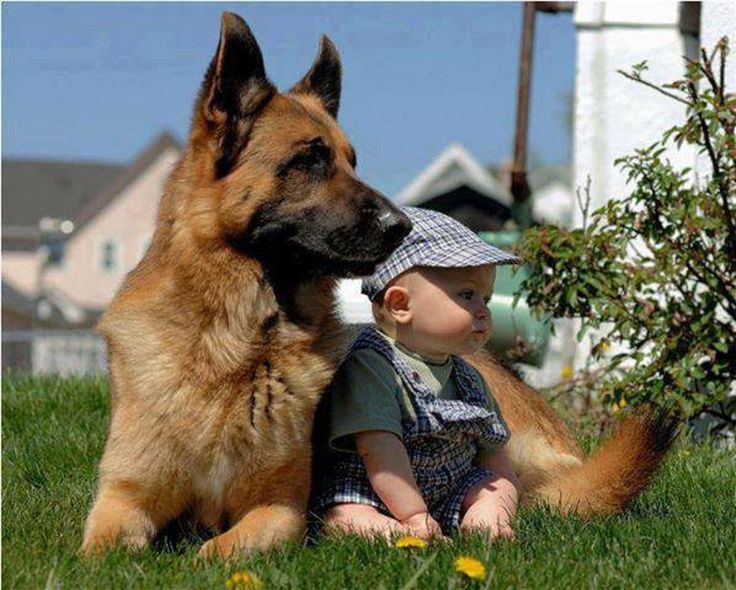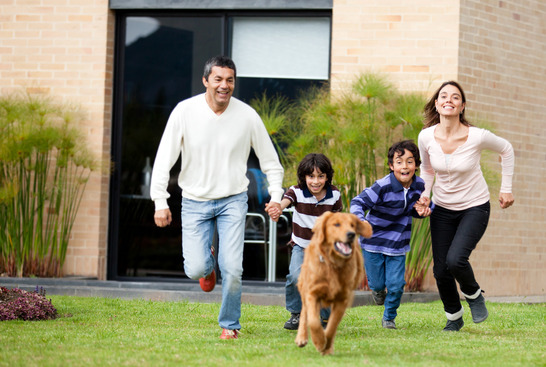Bringing a dog into your life and home is a big commitment. You need to plan ahead before rushing into a decision. Your lifestyle, household dynamic and your cash flow will all see some changes. The size of those adjustments will depend on the decisions that you make ahead of time. Be sure to consider who is in your household, your budget, and the family schedule. These considerations will be important in order to be sure you are ready to make the commitment. Be sure to explore the adoption option when you are looking for your new dog. There are lots of awesome animals in need of loving homes, it could save you some money, and you may find that a slightly older dog is a better fit for you!
Who is in your household?
When looking for a new dog, many people instantly jump to the conclusion that they need to get a new puppy. However, a new puppy may not be the best option for a household with infants or newborns. Puppies are often very rambunctious and full of energy as they learn and grow. Their little teeth and their nails are also very sharp. This combination of playfulness and sharp teeth, while also discovering their own strength and abilities, does not always mix well with young children. A new puppy can sometimes unintentionally injure young children while playing. Similarly, a young child may not realize how fragile some smaller breeds and younger puppies can be. Remember that neither the child or the puppy have a full understanding of their own, or each other’s capabilities. Adoption of an older, medium to large size dog may be more appropriate in this scenario. Older somewhat larger dogs may be able to put up with a little bit more rough play, be more docile, and sometimes even be protective of your young one.

Alternatively, at the other end of the spectrum, larger rambunctious adolescent dogs may not be appropriate if there are seniors in the household. In this case you may want to consider adopting either a smaller, or better yet, low energy breed of dog. A high energy dog that is likely to jump or rough house could end up causing a real disaster for an older person with mobility problems. No one wants to have to deal with a major injury to a family member because they selected an inappropriate pet for their household. So make sure to consider the people of the household and select a breed and size that matches the family.
What about the budget?
Like it or not, owning a dog is a monetary commitment too. Whether you find your pet through adoption, or get a puppy, you will want to plan ahead. The shelters certainly don’t need any new residents because hopeful owners didn’t budget properly. Prices to adopt a pet, and what the adoption fee includes can vary from one place to another. When purchasing a new puppy, there are some big time costs associated with vaccinations and spaying or neutering. Some shelters will provide these services and include them in the adoption fee, which can save you a few bucks. Still you need to be sure that you do your research of what is included in the fees and what your dog will need upon purchase. You will always need to budget for things like a training crate, obedience classes, toys, bones, etc.
Beyond the initial costs you will have to budget for regular costs as well. Items like food, grooming, and chew toys will be regular purchases for you. How expensive these purchases are, and how often they have to be made, will depend on the dog that you choose. Different breeds will have different food requirements and grooming needs, so make sure you take that into account when selecting your new family member.
Lastly, make sure to stash some cash in case of emergency. As we always say, poop happens. If your dog gets in a battle with a porcupine, eats something it shouldn’t have, or just gets a little infection, you may have to visit the veterinarian. Vet bills can easily reach the $500.00 mark and far beyond, and there may still be medication needed too. Pet insurance could be a valuable investment to consider at the time of adoption, but make sure you are prepared in any case. Bottom line is, plan ahead, choose wisely, and you should be just fine.

Will my dog fit the family schedule?
Different breeds will require different amounts of dedicated training and exercise. It is important that someone in the family is designated as the primary caregiver. The whole family will have to pitch in and help from time to time. However, it’s important that one person is committed to the daily care of your new pet and is able to schedule time to do so for the lifetime of the pet. Typically a parent is best suited to this role as the schedule and priorities of a child will change over the 10-15 years you have your dog. Lastly, make sure to do your breed research. Some breeds are higher energy than others and your dogs energy level should match your ability to commit time. High energy dogs will require some extra walks and more playtime for everyone to enjoy their lives together.

Dogs make for amazing companions and family members, but you need to be ready for the commitment. The shelters don’t need anymore abandoned pets. Being prepared and making an informed decision will always be best for your new dog and for your family. Visit your local shelters, and consider the adoption option. There are many great animals looking for loving homes, and you can benefit from bringing one into your home.


